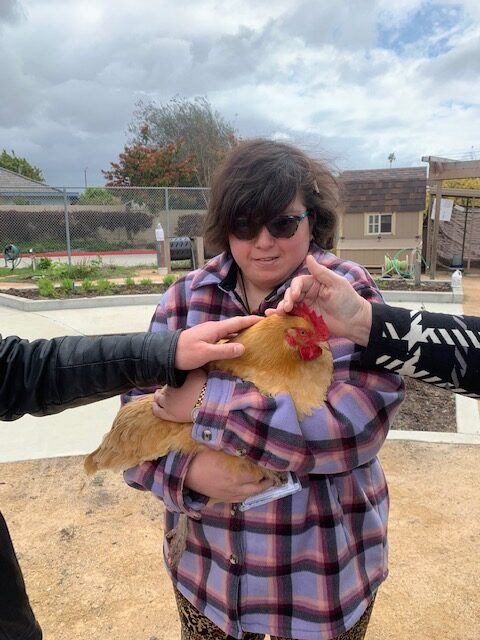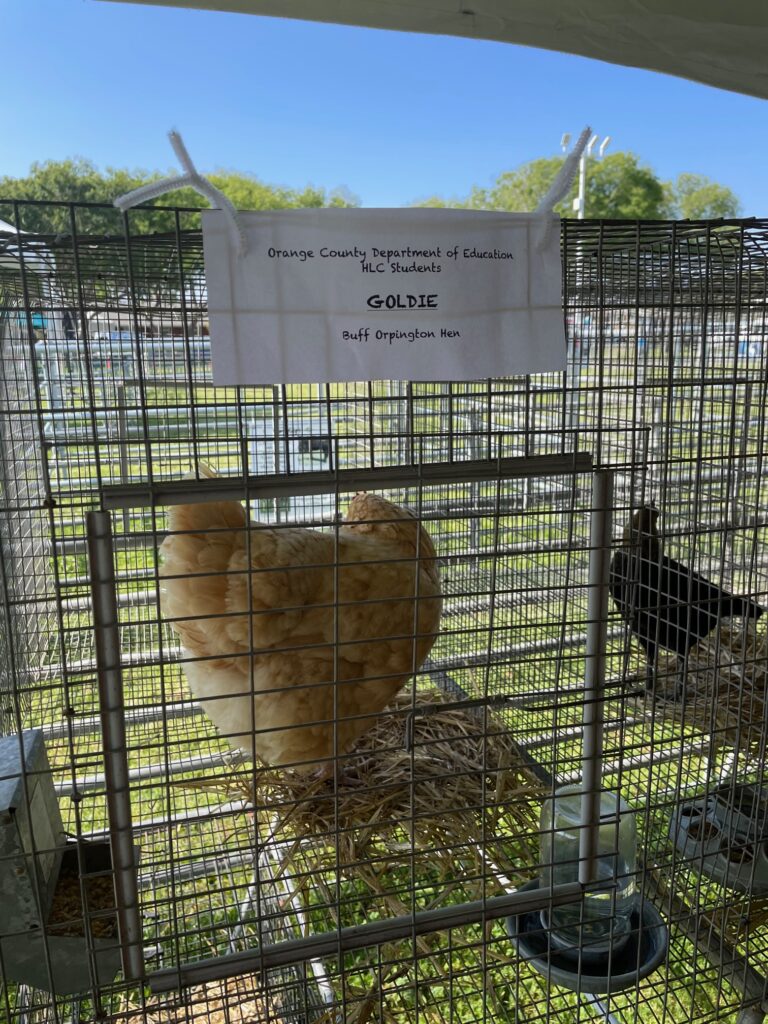
What started out as an after-school activity for students at OCDE’s Harbor Learning Center campus has hatched into a popular program with award-winning chickens at the Orange County Fair and Event Center’s Imaginology competition, held on April 16.
The “HLC Breakfast Club,” comprised of more than 50 students from the Orange County Department of Education’s Special Education division, entered three chickens from their campus coop — with help from Special Education Services Chief Analee Kredel — in the annual OC Fair event. Their feathered friends, “Jolene” and “Nickel Nickel,” earned two second-place spots while “Goldie” won a first-place award for best breed and champion large fowl.
“The chickens have been a real connection for the students,” said Special Education Services Manager Molly Fults. “Being able to take them to Imaginology was a great experience.”
Once a month, students from the Adult Transition Program at Golden West College and the Irvine Special Classes at Irvine High School join students at the Harbor Learning Center campus to attend 4-H club meetings. Through 4-H, which stands for Head, Heart, Hands and Health, members get to develop their leadership skills and roles as they learn agricultural practices and hear from guest speakers on topics like sustainable gardening, raising chickens and water conservation.
The Harbor Learning Center chapter of 4-H was formed in 2020 as the first club for students with special needs who are served by OCDE. Due to its success across multiple campuses, the Special Education division staff are looking to expand the group to other sites with different focuses like art and vegetable growing.

Before bringing their three hens to the event, Adult Transition Program students Justin, Stacy and Ziair helped care for them by fluffing their feathers and filing their nails to make sure they looked their best for the judging portion. The students received compliments from the judges for looking after the chickens with great care.
Fults said that being recognized at the competition helped the club develop a sense of pride in its work.
“It’s not the big achievements but the little things that matter most to our students,” Kredel said.
Within OCDE’s Special Education Services division, Adult Transition programs help guide students with disabilities from the age of 18 through 22 to join their community and workforce in a meaningful and empowering way. The programs emphasize student independence, choice-making, individualized work experience, communication skills and money skills with integration into the college population and a transition to integrated work.
